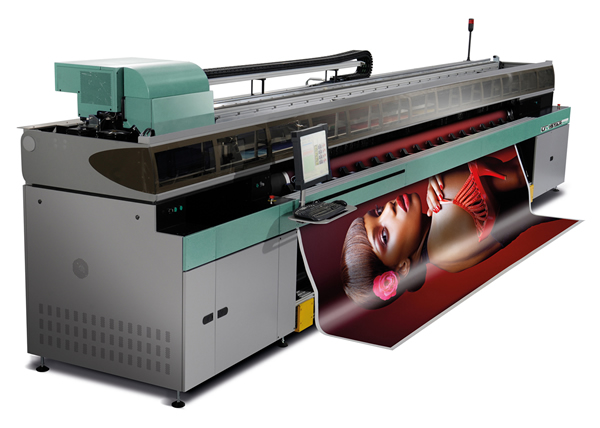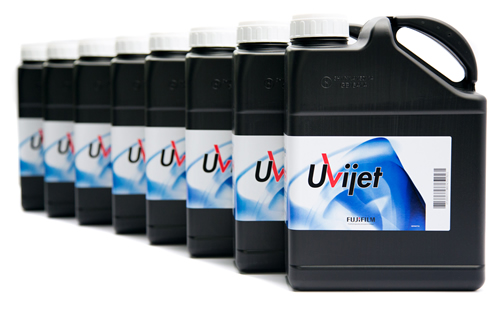Should you bother switching energy provider? Yes, you should. And the FSB has a new service to help you.
Environment
Notes from a scandal
VW’s troubles may look like a one-of-a-kind disaster but, Walter Hale suggests, there’s a lesson there for every print business.
It’s too easy to see the VW affair as a plain and simple corporate fraud. Yet as Gregory Unruh, a professor at George Mason University in Virginia - one of the world’s leading authorities on sustainability says, the reason that the car maker cheated should make every business leader stop and think: “The underlying cause was that VW’s chosen technology, the diesel engine, failed to meet 21st century sustainability standards in key markets.” As he puts it, “VW is discovering a stark, Darwinian reality: sustainability kills.”
Better together
How China-based Aria has been working closely with Fujifilm to provide a PE offering that is a more environmentally-friendly alternative to PVC.
“When green printing is the goal, it is all about developing the right synergy of substrate, printer, ink, and software.” So says Craig Adams, president of Aria, a company that has and continues to work closely with Fujifilm to develop an inkjet printable PE (polyethylene) substrate as an environmentally-friendly alternative to PVC for banners, billboards, signs and displays.
More than a label
Fujifilm recently announced that it had gained Nordic Ecolabel certification for its Uvijet UV inks. But this is much more than an environmental tick box exercise; it’s about corporate responsibility. So does that matter to you?
How much do your suppliers’ CSR programmes matter to you? The recent announcement by Fujifilm that it has received Nordic Ecolabel certification for inks within its Uvijet range has prompted the question not only because it’s a move that in itself is significant, but because of what it says about the company’s overall CSR vision. And what that in turn suggests about the need for others to be more proactive.
What shade of green are we?
Mild green is the answer to that if the responses from the UK’s large-format PSPs to the Image Reports’ Widthwise Survey 2015 are anything to go by. So do the sector’s suppliers feel the same way?
For every large-format PSP with laudable environmental initiatives and practices there are hundreds without. This is not gut feel – extrapolated data from the Widthwise Survey 2015 shows it to be the case. So is this somewhat wishy-washy sectoral attitude reflected by its suppliers? Here we asked a cross section for their current view of the situation and how they expect to move forward in a world where a ‘doing less bad is good’ attitude is becoming increasingly outmoded.
Riding with the free-riders?
Kevin Bray of K J Bray and Associates is the new environmental consultant to the Fespa UK Association. Here he asks if you should be delving deeper into rules and regulations governing the kit you discard.
It has become clear to me over the past few years that there are many in our industry who, perhaps through oversight, and hopefully only through oversight, do not comply with all so-called ‘Producer Responsibility’ legislation. From the outside, many of these regulations can seem somewhat esoteric and arcane, so non-compliance is often not entirely deliberate, but happens because it is easier to see them as someone else’s problem or responsibility. But it’s not.
Message from Mars?
To many printers what Consolidated Printing founder Marilyn Jones has to say on the issue environmentalism is an alien concept. But should we be learning from it?
When other printers come to visit Consolidated Printing in northwest Chicago, they invariably spot that one thing is missing. Why, they ask, is their no external exhaust fan in the pressroom? The answer is simple: the company, which produces everything from media packs to digital colour printing and signage, doesn’t need an exhaust because it doesn't produce any harmful emissions when printing.
Fighting talk
Two Sides is doing a great job at distributing the environmental facts about print. But Digital media is still getting away with too much when it comes to the sustainability argument. Could that be changing?
Does an iPhone use more energy than your fridge? Mark Mills, CEO of Digital Power, made that claim in a study about Cloud computing two years ago, sparking a furious online debate. American think tank, the Breakthrough Institute, crunched the numbers and concluded that a typical iPhone consumed 388kWh of energy a year whereas some household refrigerators used as little as 322kWh.








